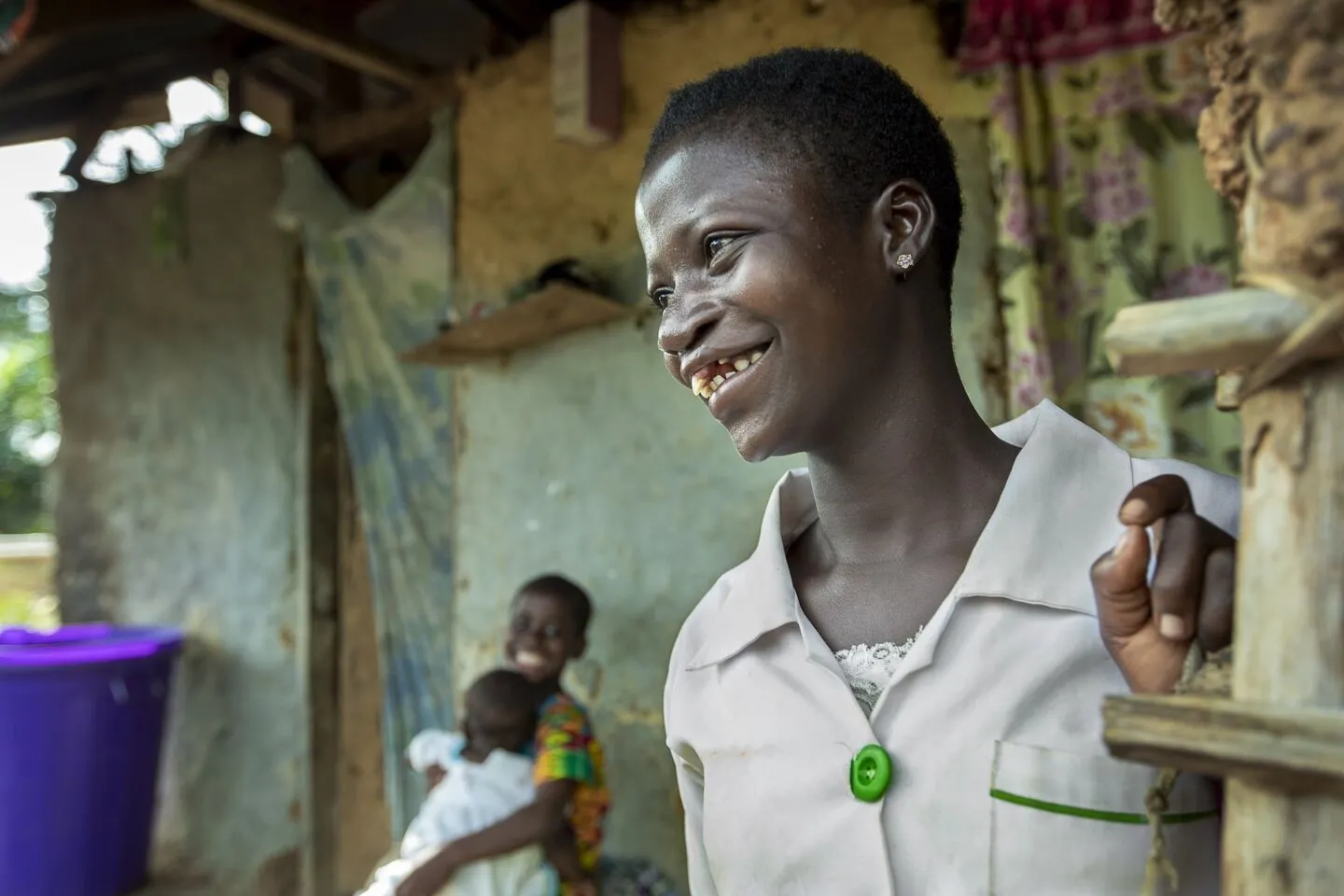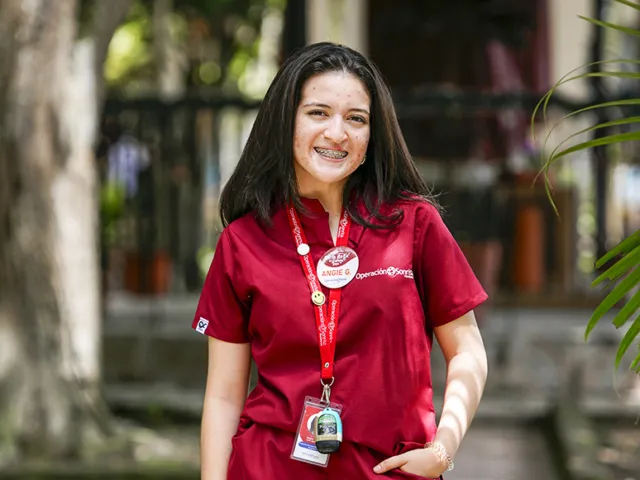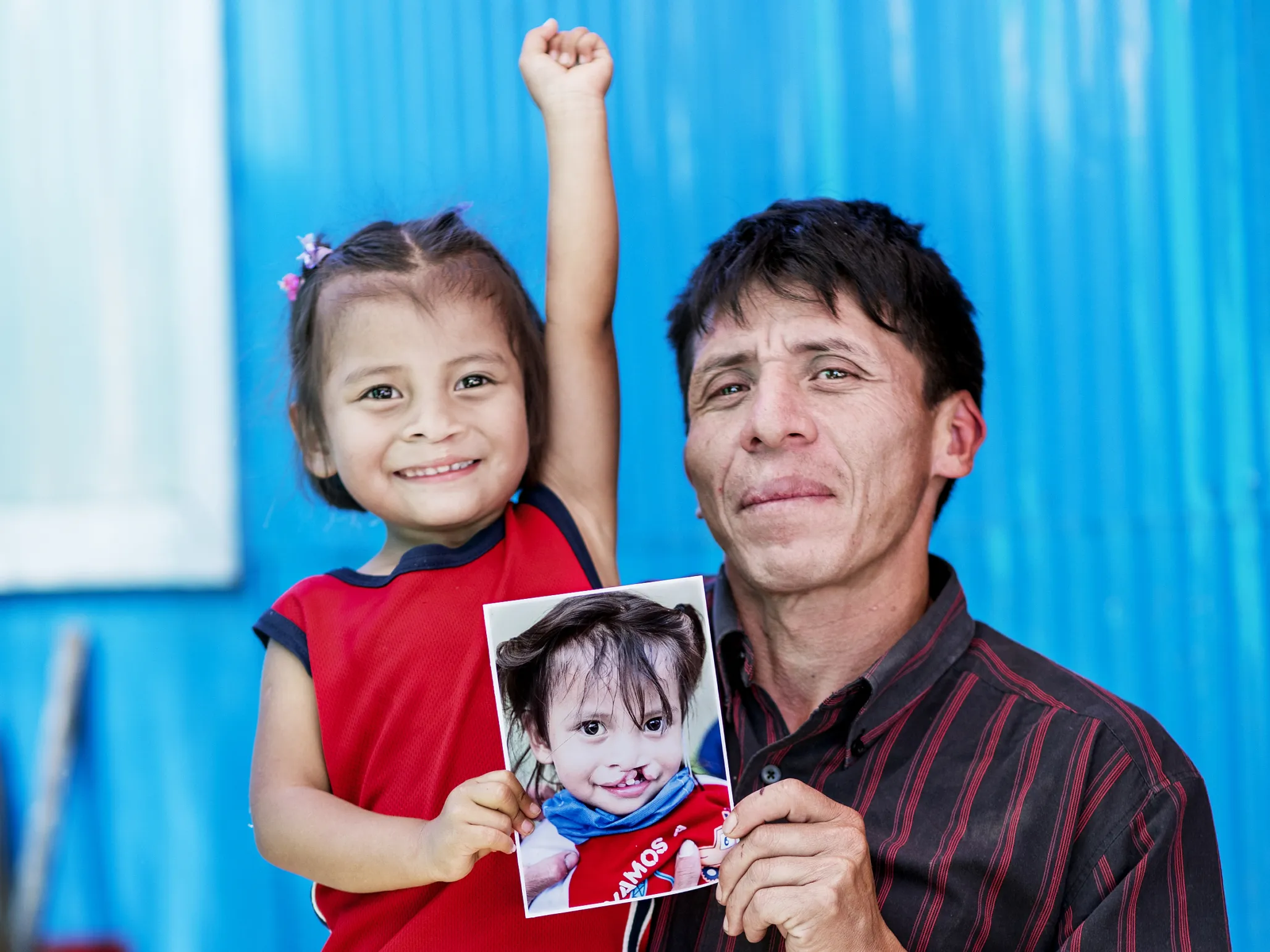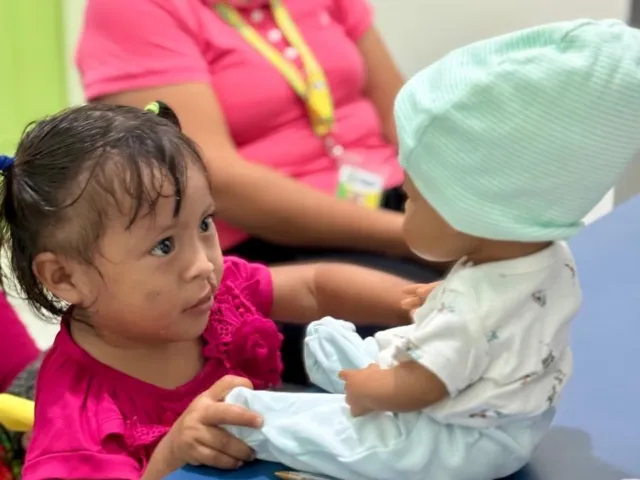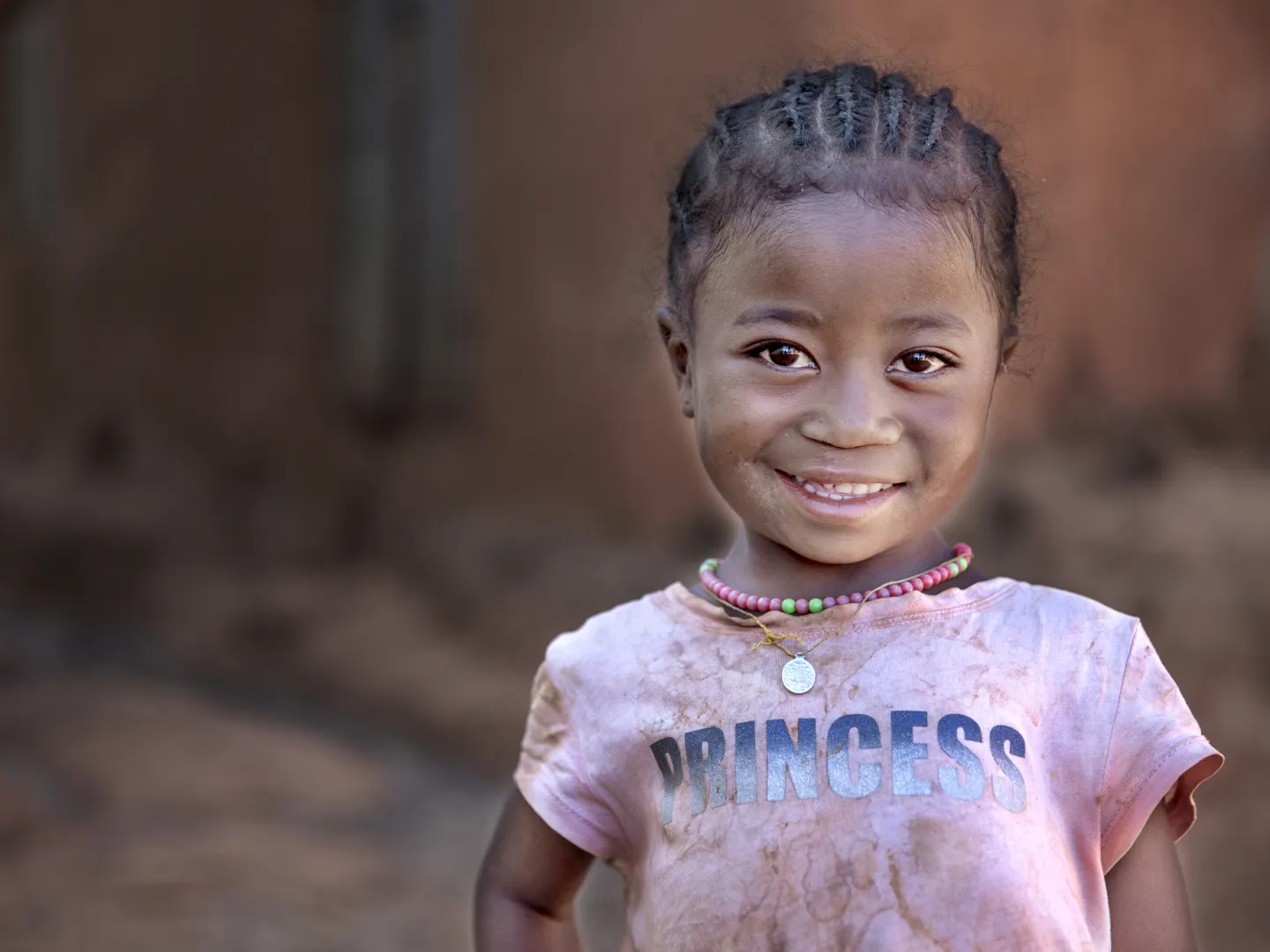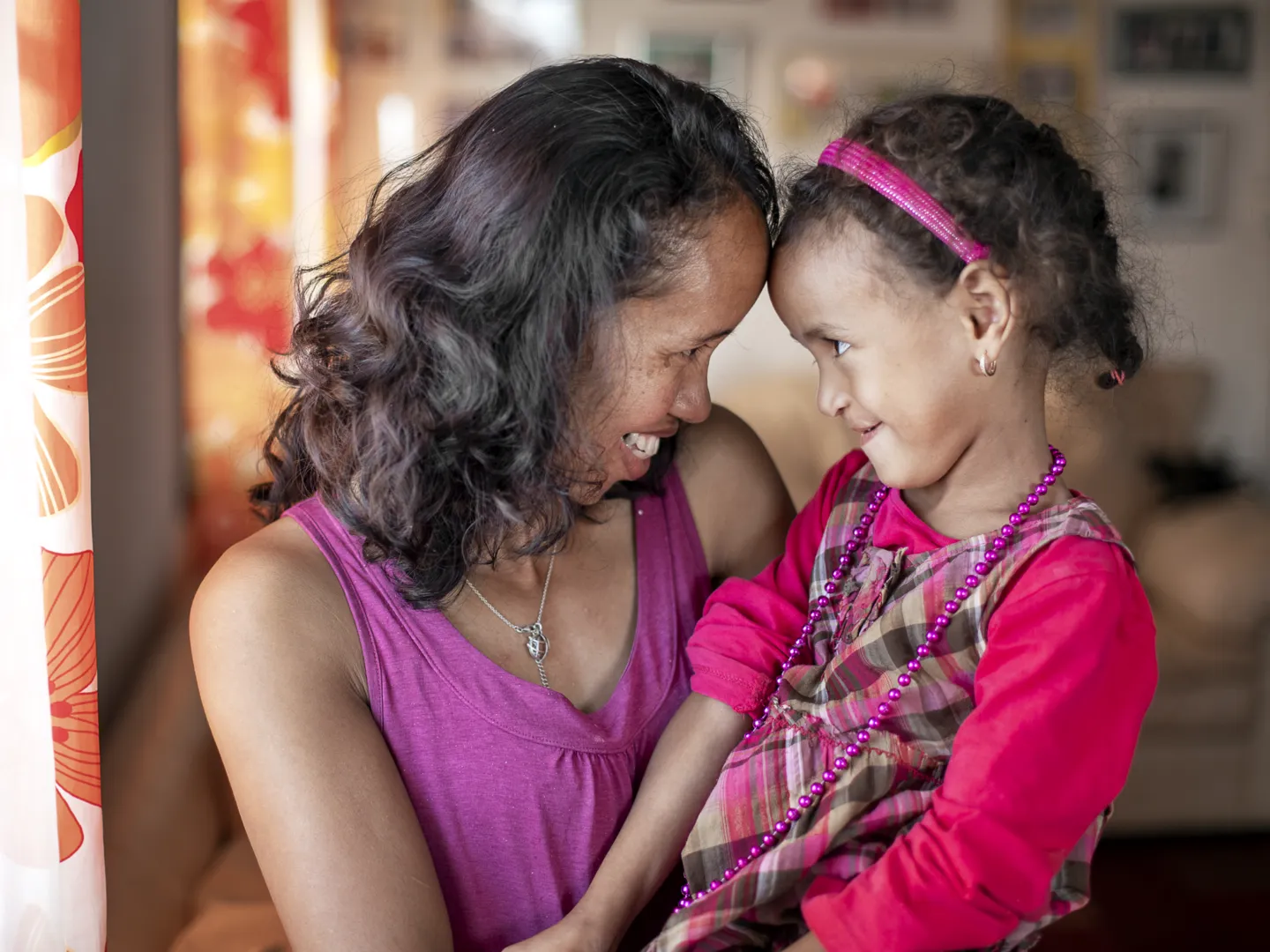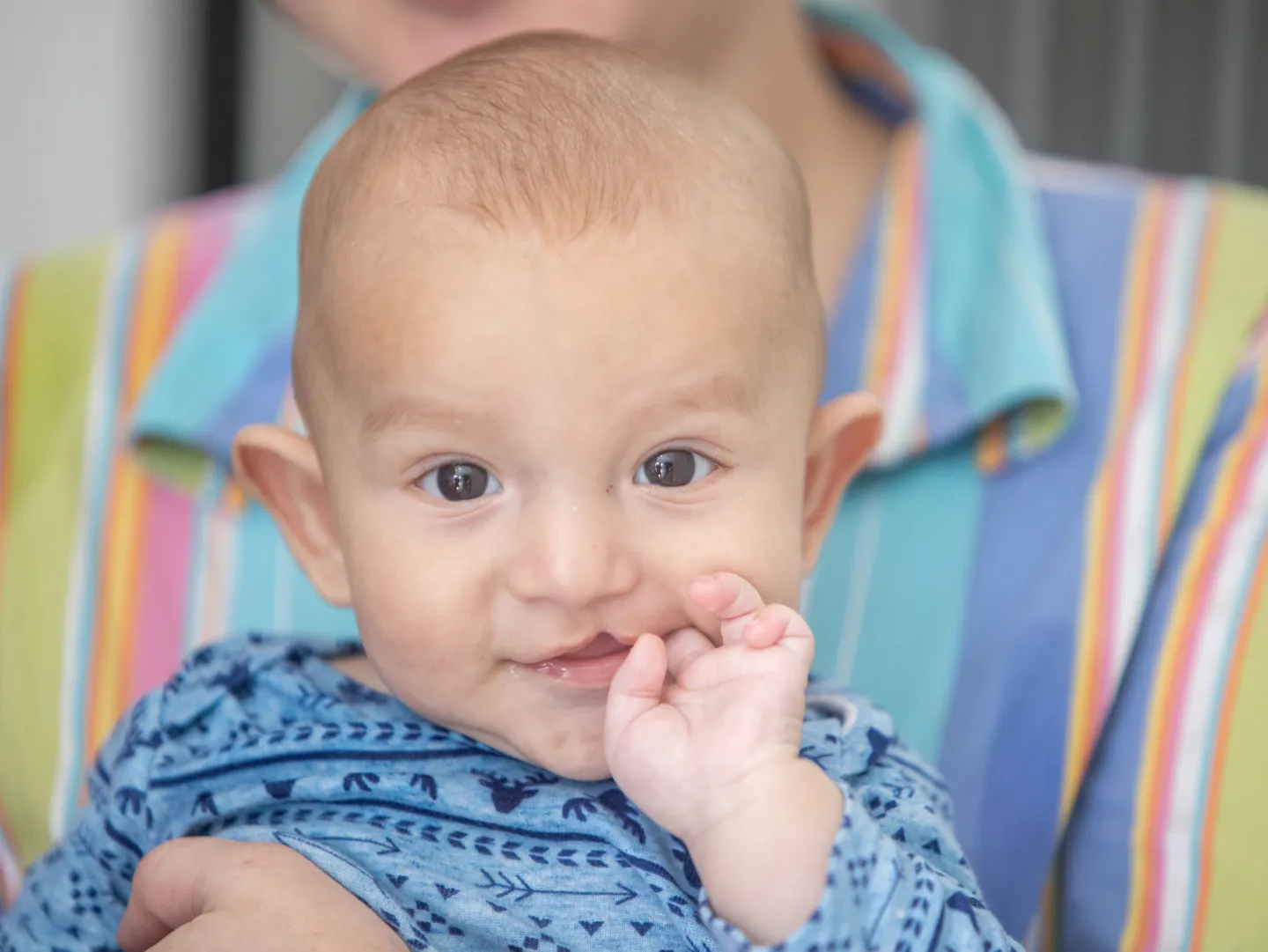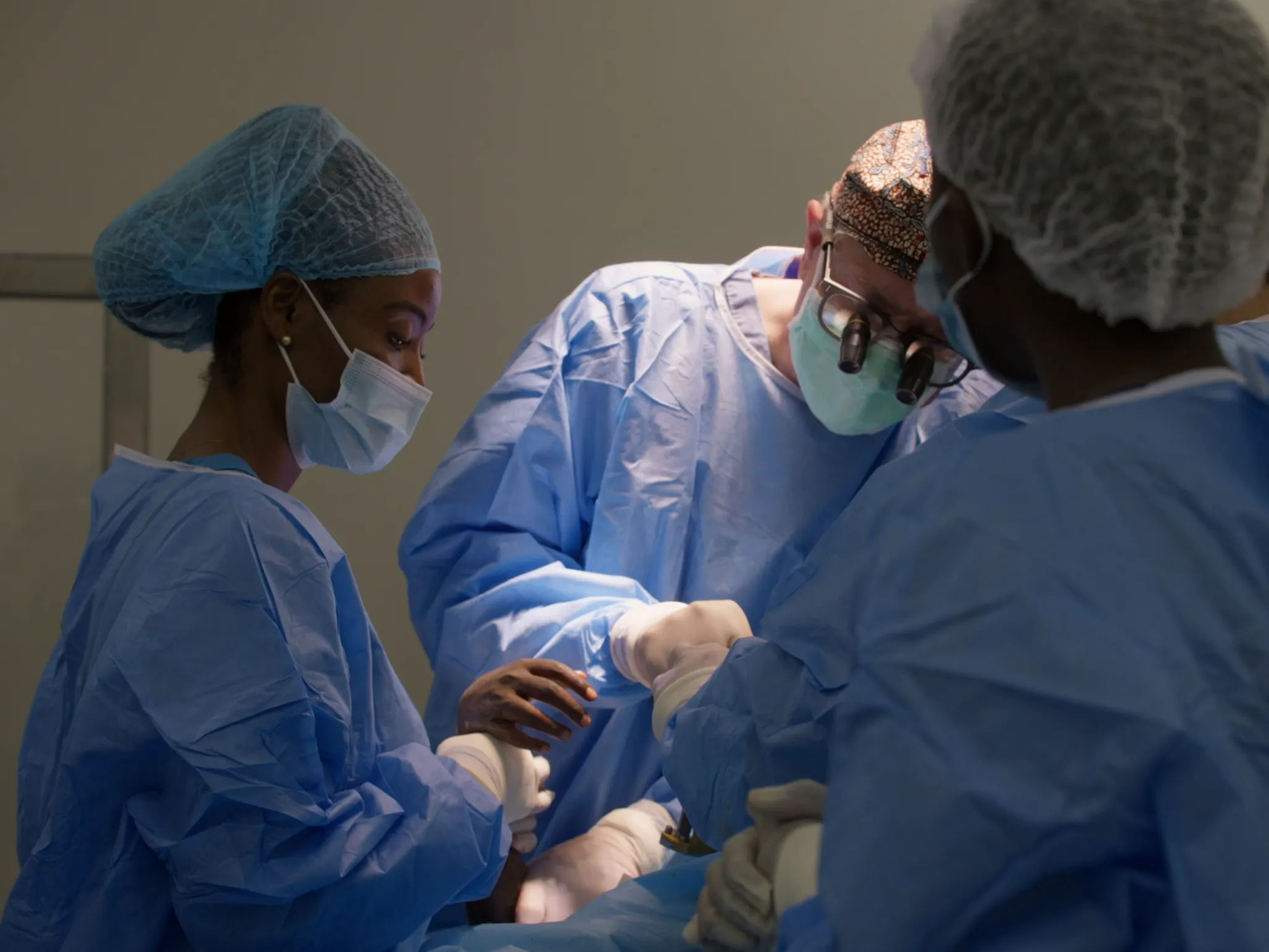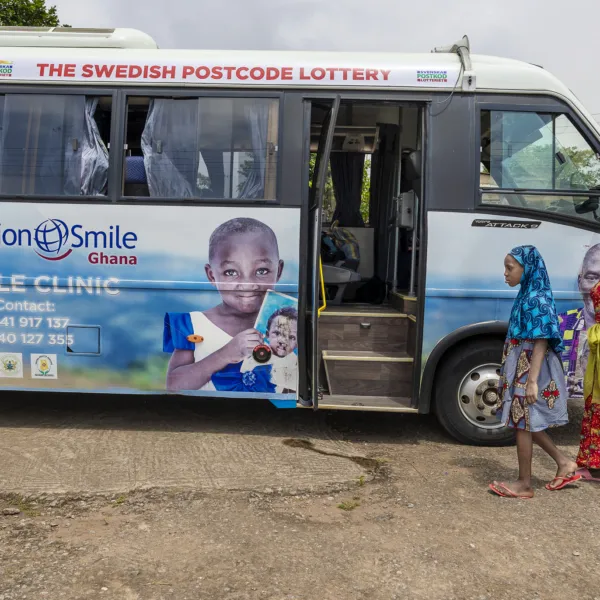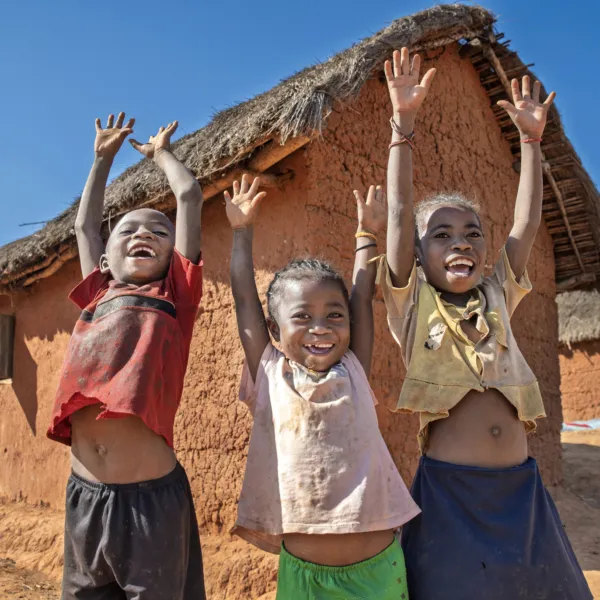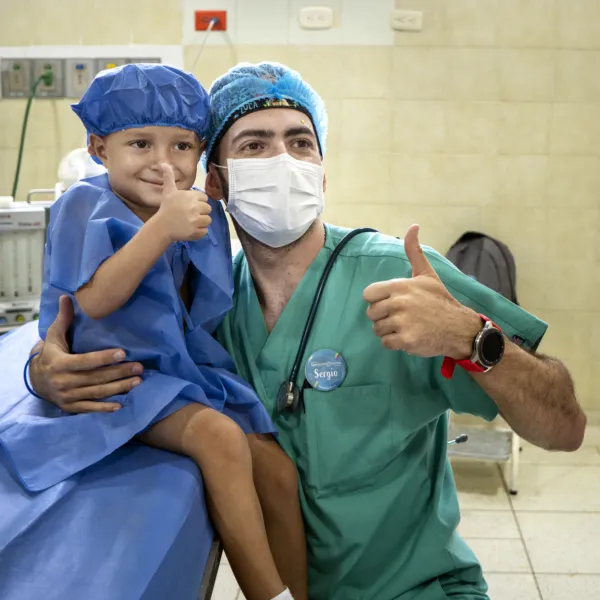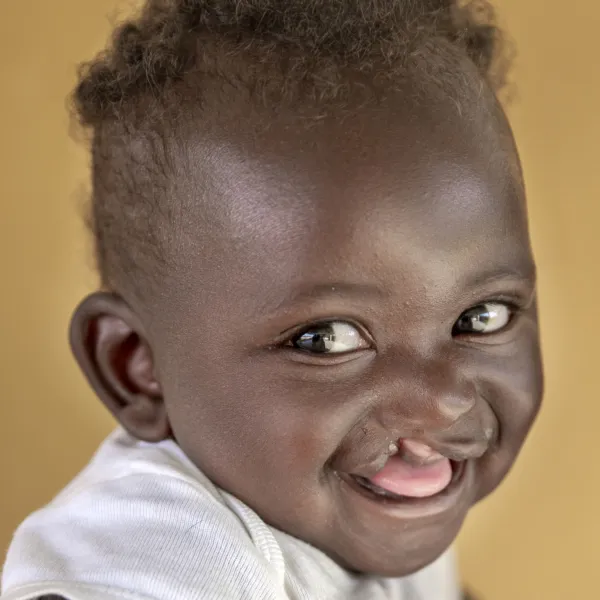Patients
The Tailor of Her Future
It’s been a jarring and crawling two-hour drive since the pavement of the nearest town gave way to a red clay road pocked with pools of muddy water that conceals vicious potholes and crevices.
The condition of the road stands in stark contrast to the lush natural beauty that surrounds it as you head deeper into jungle. Just as it narrows down to a car-wide path cut through the thick tropical underbrush, the road widens, and the vegetation clears.
A small green hut emerges a couple of hundred meters ahead.
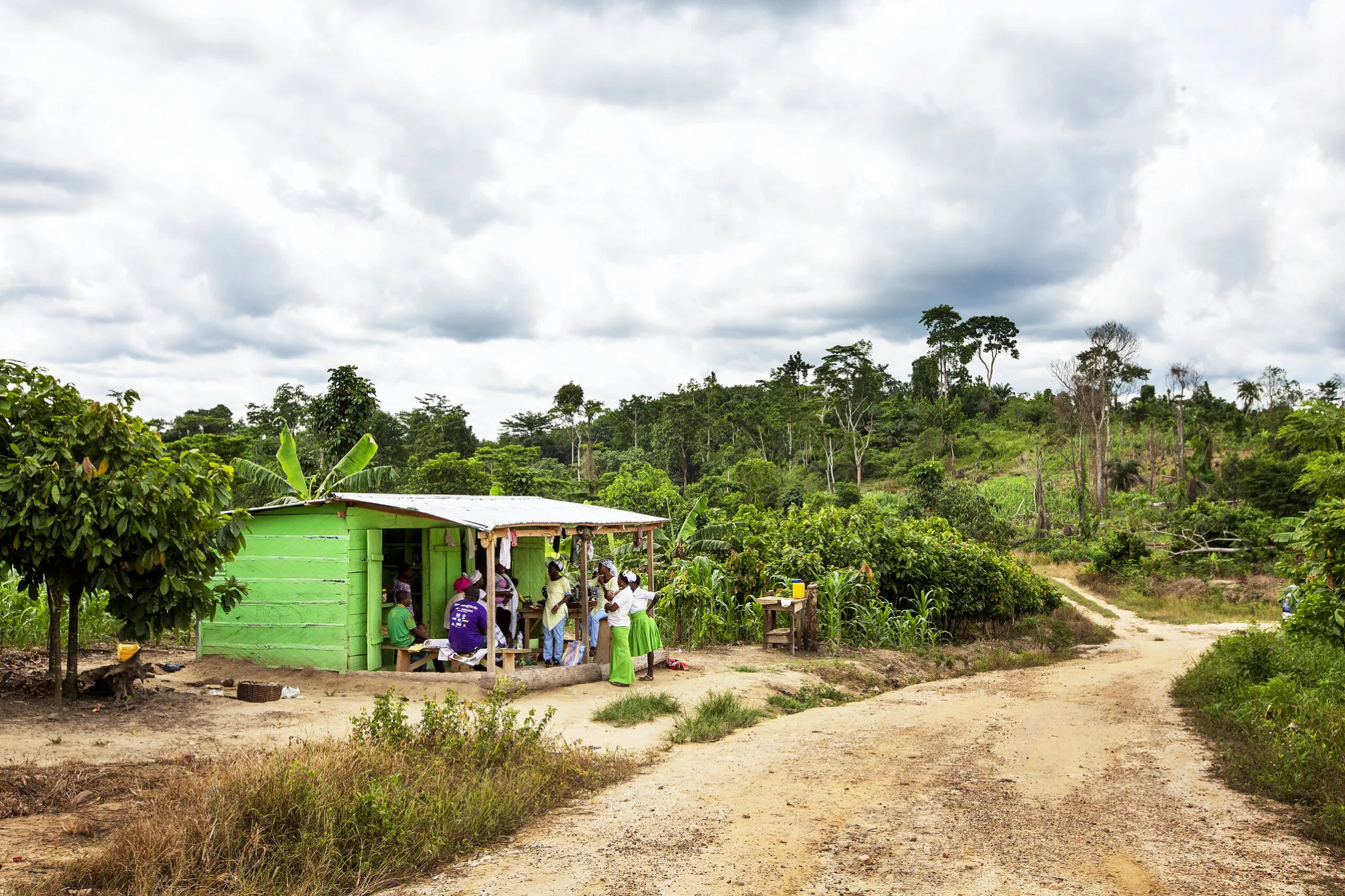
Now 18 years old, Faustina stands behind a manual sewing machine, focusing on a line of stitches that she’s running into a bolt of purple and white fabric. Under the shade of this green hut, under the watchful eye of Memunatu, the village’s head seamstress, Faustina and her classmates are studying to become masters of the craft.
The sounds of cheerful laughter and conversation fill the humid air, echoing into groves of green cocoa trees as the near-equatorial sun shines brilliantly.
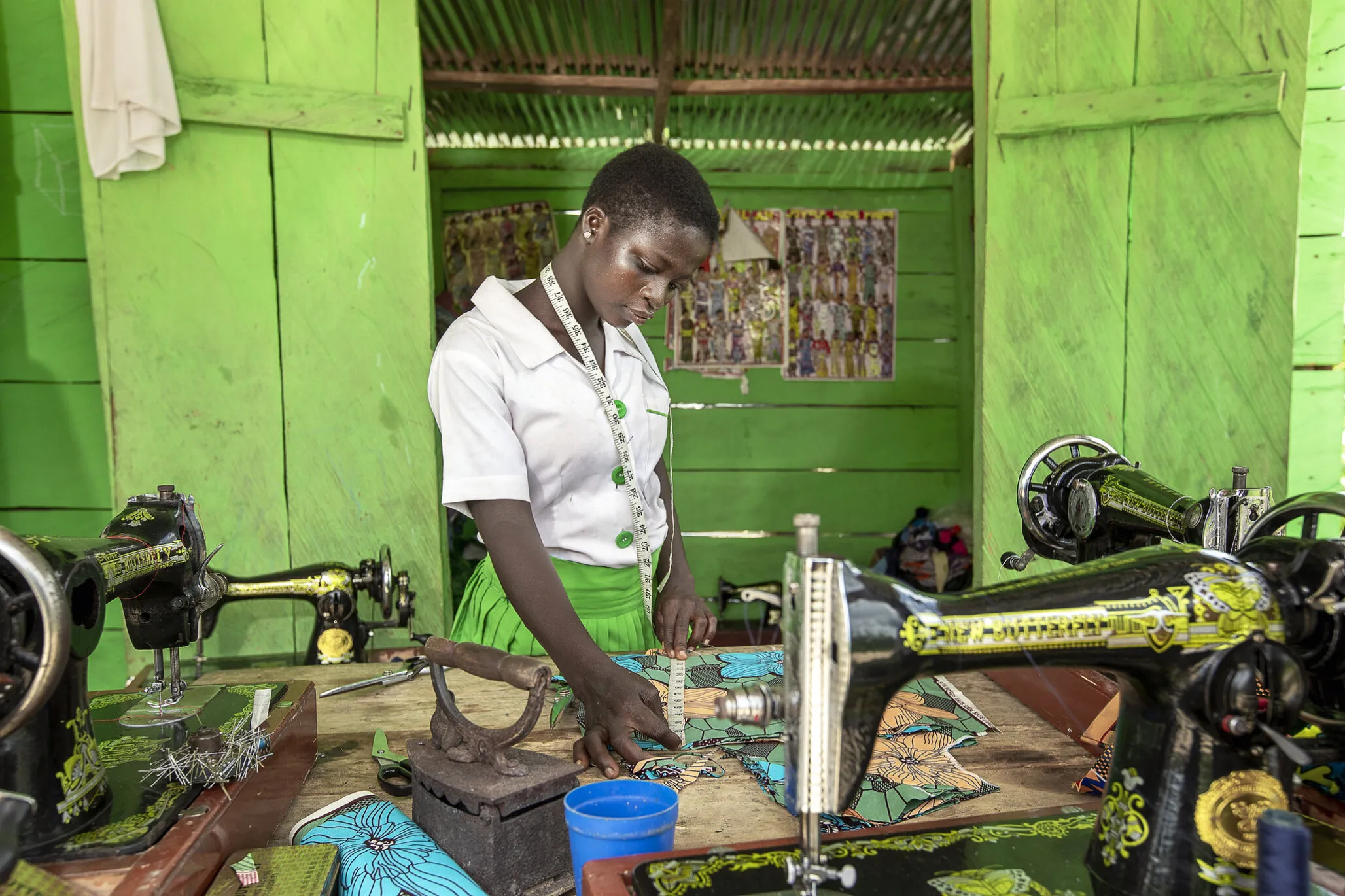
“To be honest, with my cleft, I could have never imagined this kind of a future for myself,” says Faustina with a cool confidence as 17 years of isolation and stigmatization are sent into the past with a subtle giggle.
The change in Faustina’s demeanor is as dramatic as the physical transformation of her smile – both made possible by a surgery that lasted a little more than 45 minutes.
When we first met her at an Operation Smile Ghana surgical program, her eyes reflected a lifetime of pain and longing. She stuck close to her father, Mohammed, as she dreamed of what her life could be like after surgery.
Today, Faustina is the tailor of her future.

“I wanted to be a hairdresser, but after the surgery, I gave it some thought and realized that I really wanted to be a seamstress,” Faustina says. “Learning to be a seamstress makes me happy, and I will be able to help my family by sewing for my siblings and my mother and father.”
Her teacher tells us more about how Faustina has transformed into the friendly, often outgoing, young woman that she is today.
“Before the surgery, she used to be a shy type, quiet type, that any time there is gathering you would definitely not find her among the people showing up,” Memunatu says. “After surgery, what I’ve seen is that she is now very friendly and she’s open. She has a lot of friends and you can see that now she feels free.”
Memunatu adds that Faustina been a quick study as a seamstress, and that she envisions a bright future for her in the craft.
Faustina says that she’s completely focused on studying the craft of sewing and that her goals are both to get her own sewing machine and to master sewing so that she can open her own shop. She envisions a future where she meets a good man, gets married, starts a family and supports her parents as they grow older.
As we talk to Faustina, her selfless nature becomes more apparent. She tells us that the reason she pivoted from dreams of hairdressing to sewing was because sewing was something that she could do for the entire family, community and herself, whereas hairdressing limited her to a smaller group of people.
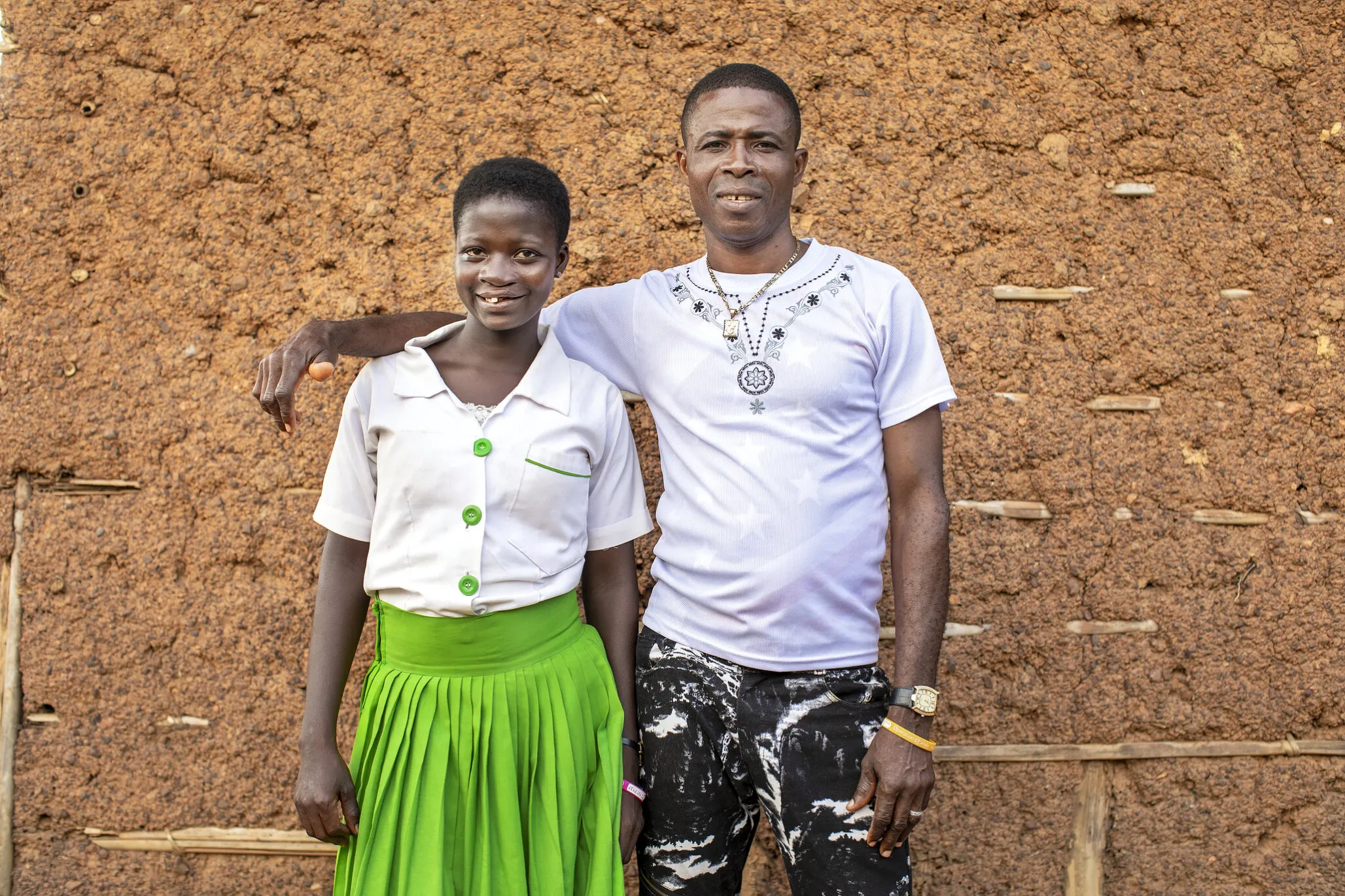
“As a father, my wish is to see that my daughter achieves something in life, and it’s her greatest wish to learn something, and I realize that sewing is what she’s very passionate about,” Faustina’s father, Mohammed, says.
“I know that life has its trends. You pass through difficulties before you get to the promised land, before you make it. So for me, I see her life going through this process. Operation Smile gave her that surgery, and it’s making life easier for her to push for achieving her dreams.”
Mohammed says that every day when he prays, he prays for the continued success and deepening of the skills of everyone involved with Operation Smile.
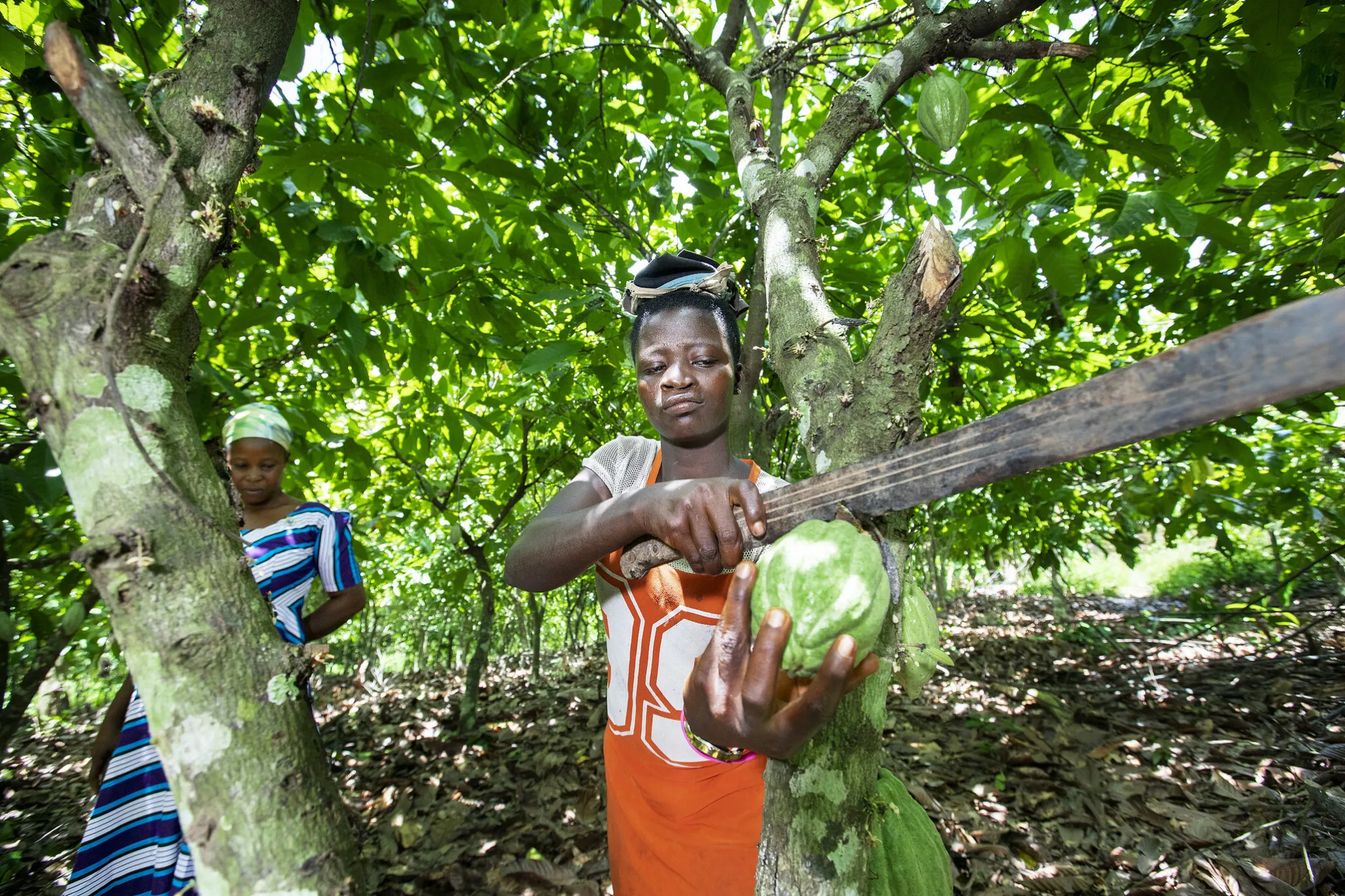
Faustina’s home is located at the top of the tallest hill in the area. It’s surrounded by the cocoa trees that her family and other community members farm for the Ghana Cocoa Board, which buys the beans for commercial distribution. This is the community’s principal form of income. Subsistence crops are also grown, and livestock are raised to round out the lifestyle. The natural beauty surrounding the village is absolutely breathtaking.
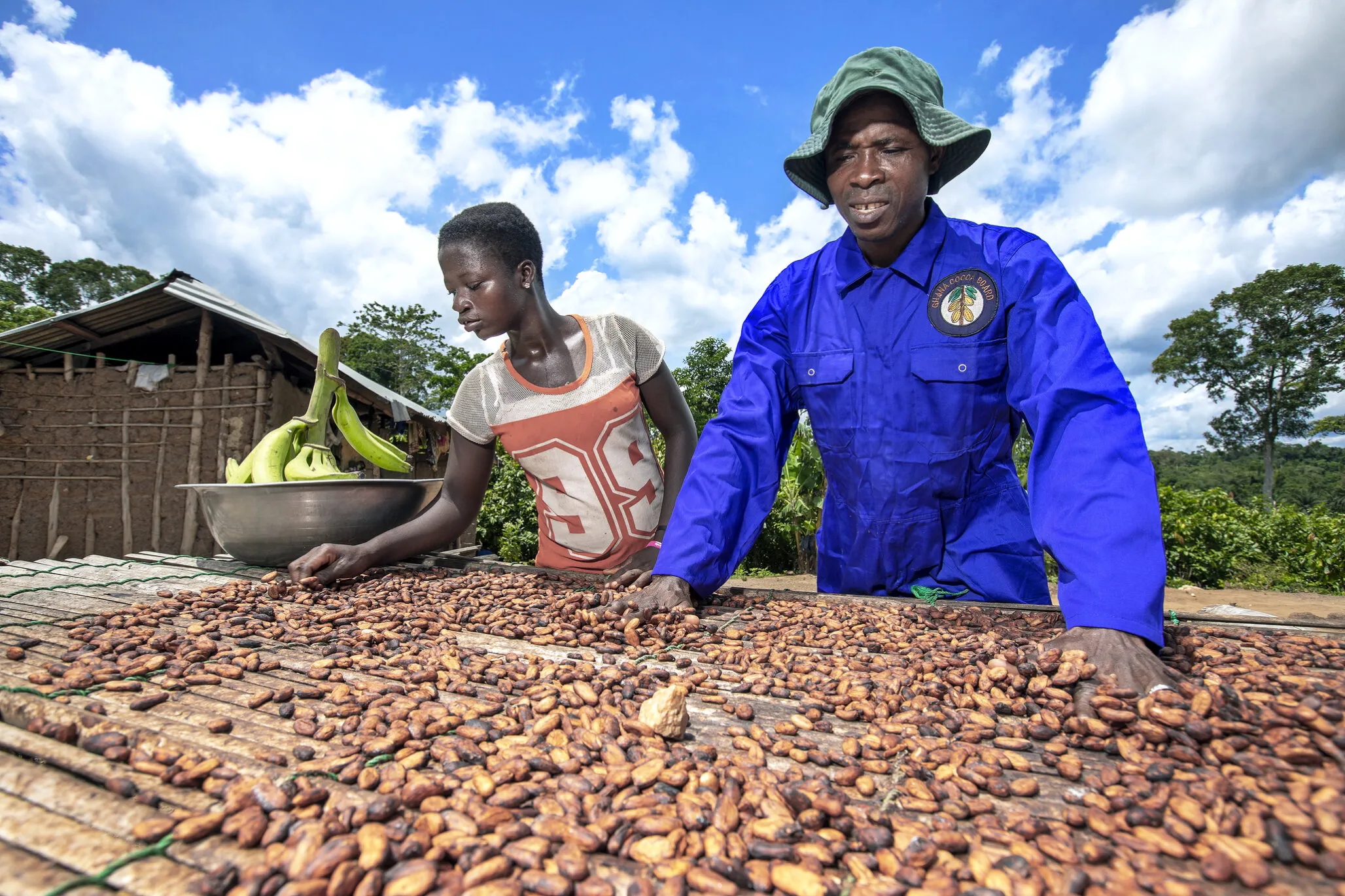
Although Faustina’s community has rallied around her since her surgery, the specter of the mistreatment that she endured for most of her life lies just under the surface.
As she sits proudly atop full bags of cocoa beans next to the village’s scale, we ask her a question that evoked deep emotions in everyone within earshot: “How have you been able to forgive and befriend the same people who once treated you so poorly?”
“I have forgiven them,” Faustina says. “But I’ve realized that they have this sort of guilt in them because of how they acted towards me before my surgery. And now that they have accepted me, deep in their minds, you realize that they have this sort of ill feeling of guilt in them. But for me, I don’t hold anything against them. I have accepted them as friends.”
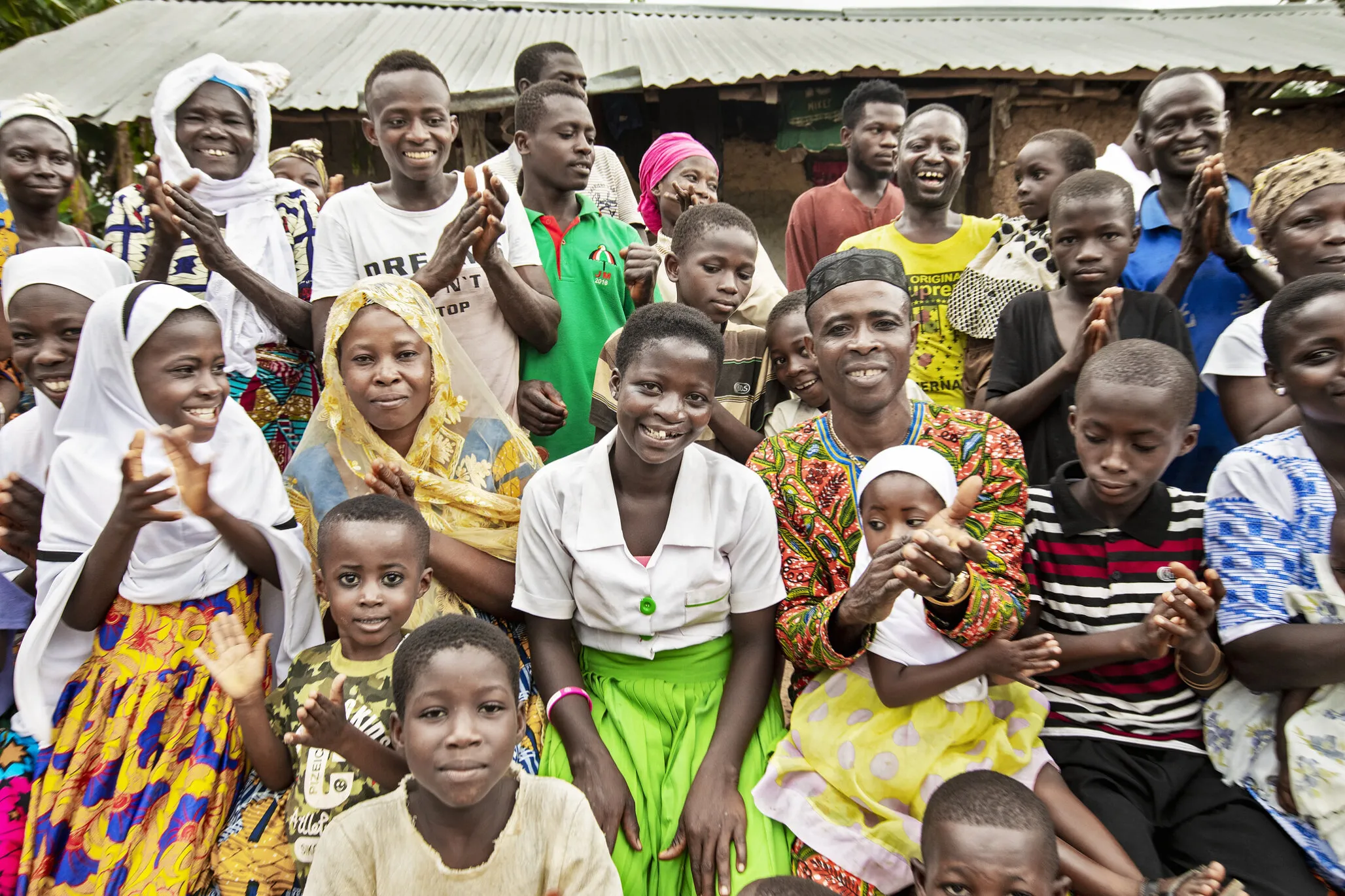
She tells us that before surgery, when she dreamed, she would have her cleft lip and that those dreams would be sad. But after surgery, those dreams ceased and that she would be as she is today, singing in front of her church. Now that she can — and does — sing before the congregation, she says she feels like her dreams have come true.
“When I fetched water with a cup to drink, no one wanted to use the same cup as me. So life, as a whole, was not pleasant for me; I wasn’t a happy person,” Faustina says. “So, there was no way that it could cross my mind that the future would look bright.
“But now, looking at this change and the ability to mingle with people, to go everywhere that I want to go, everyone accepting me, I see a bright future. Now, when I take a cup and fetch water and drink, people use that same cup and drink.
“It means that I’m accepted by all.”
